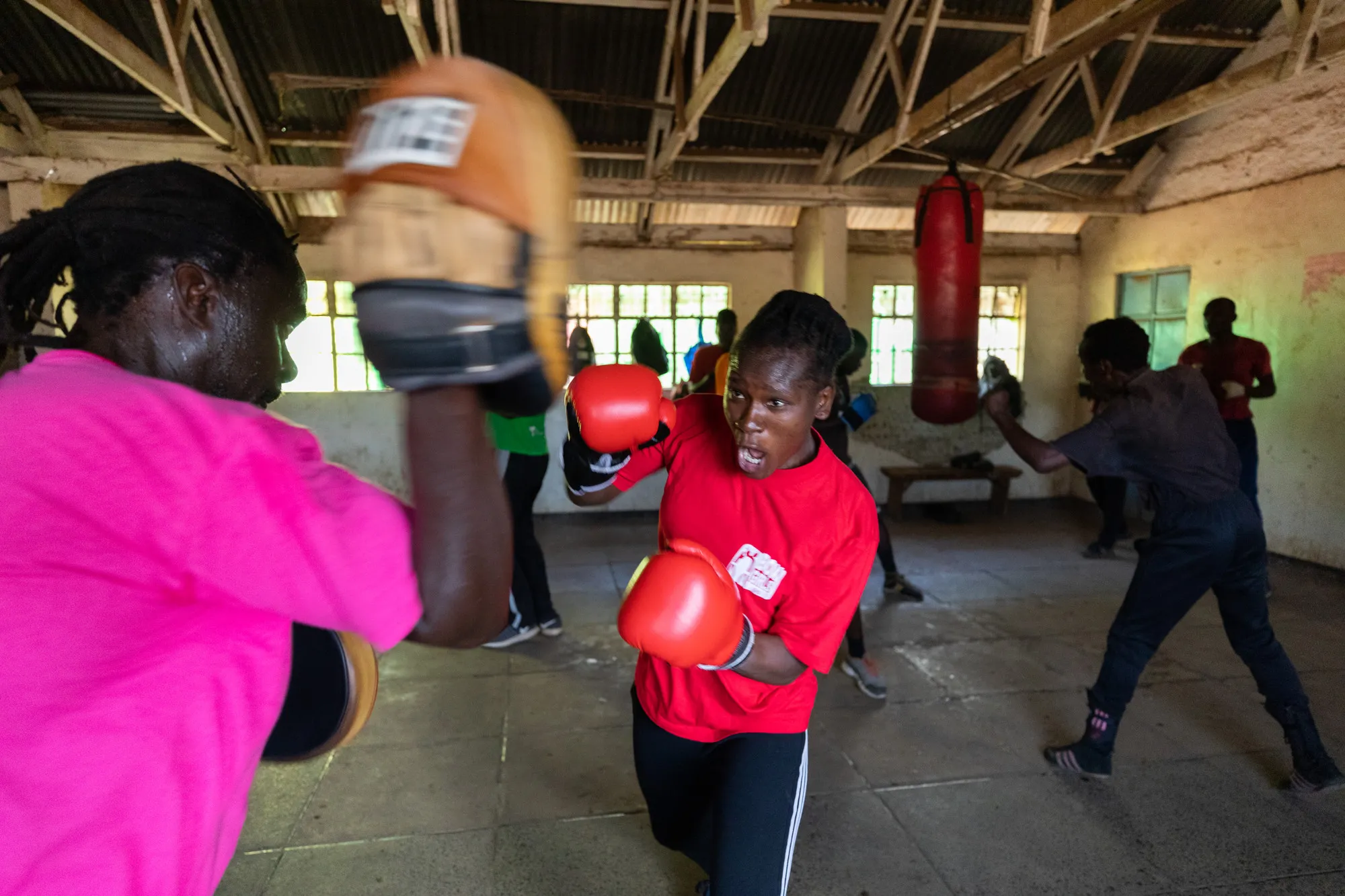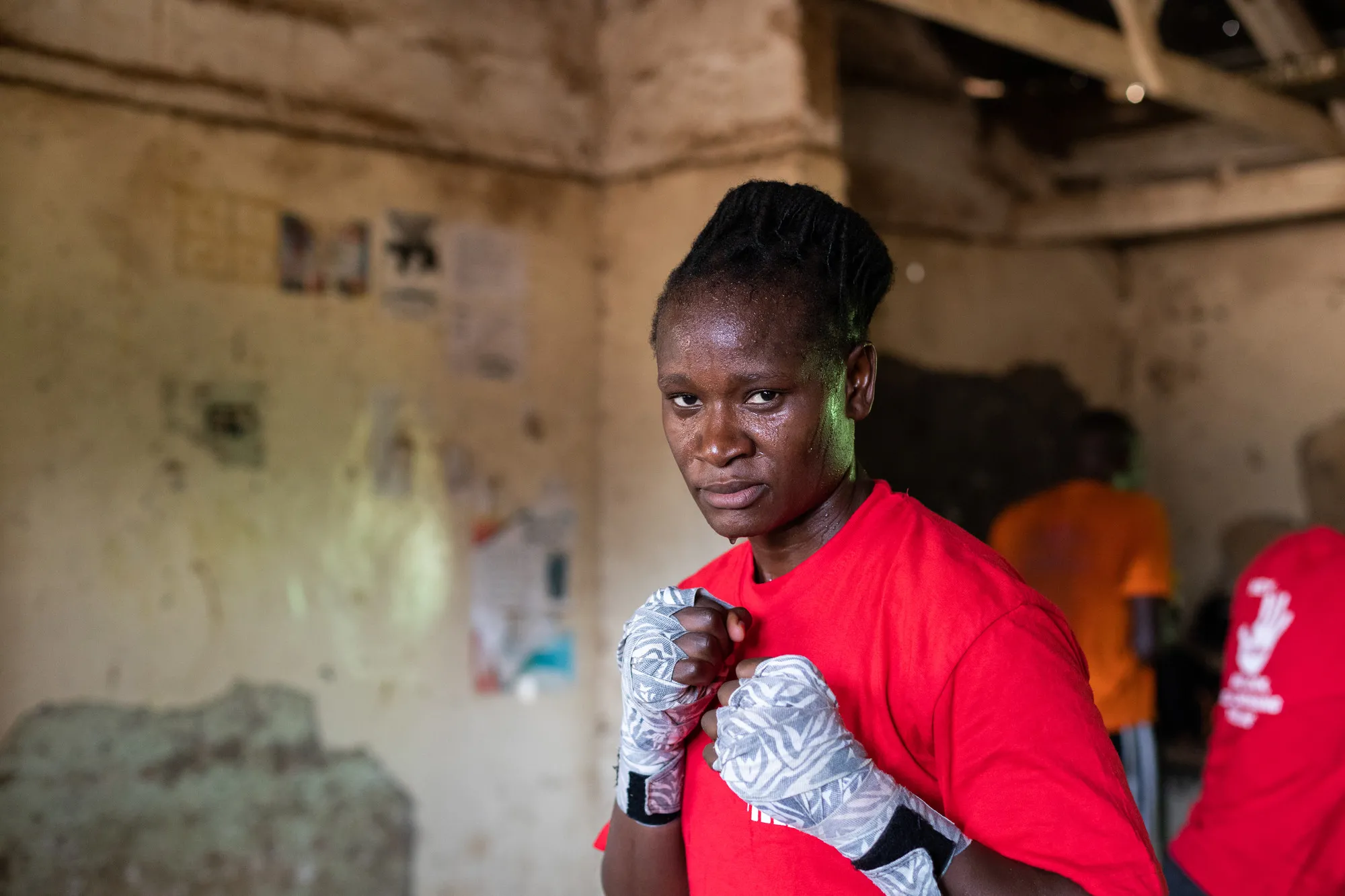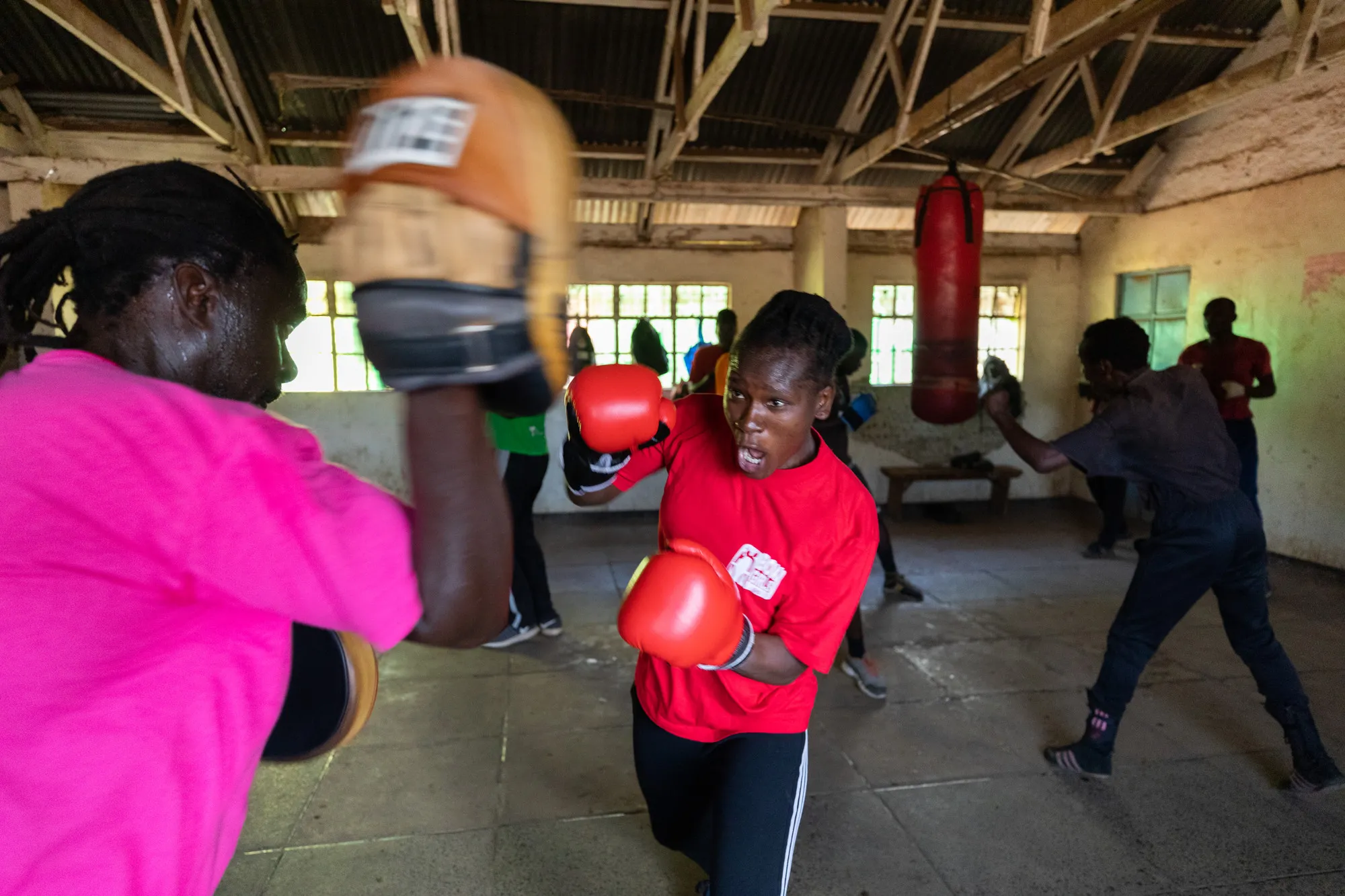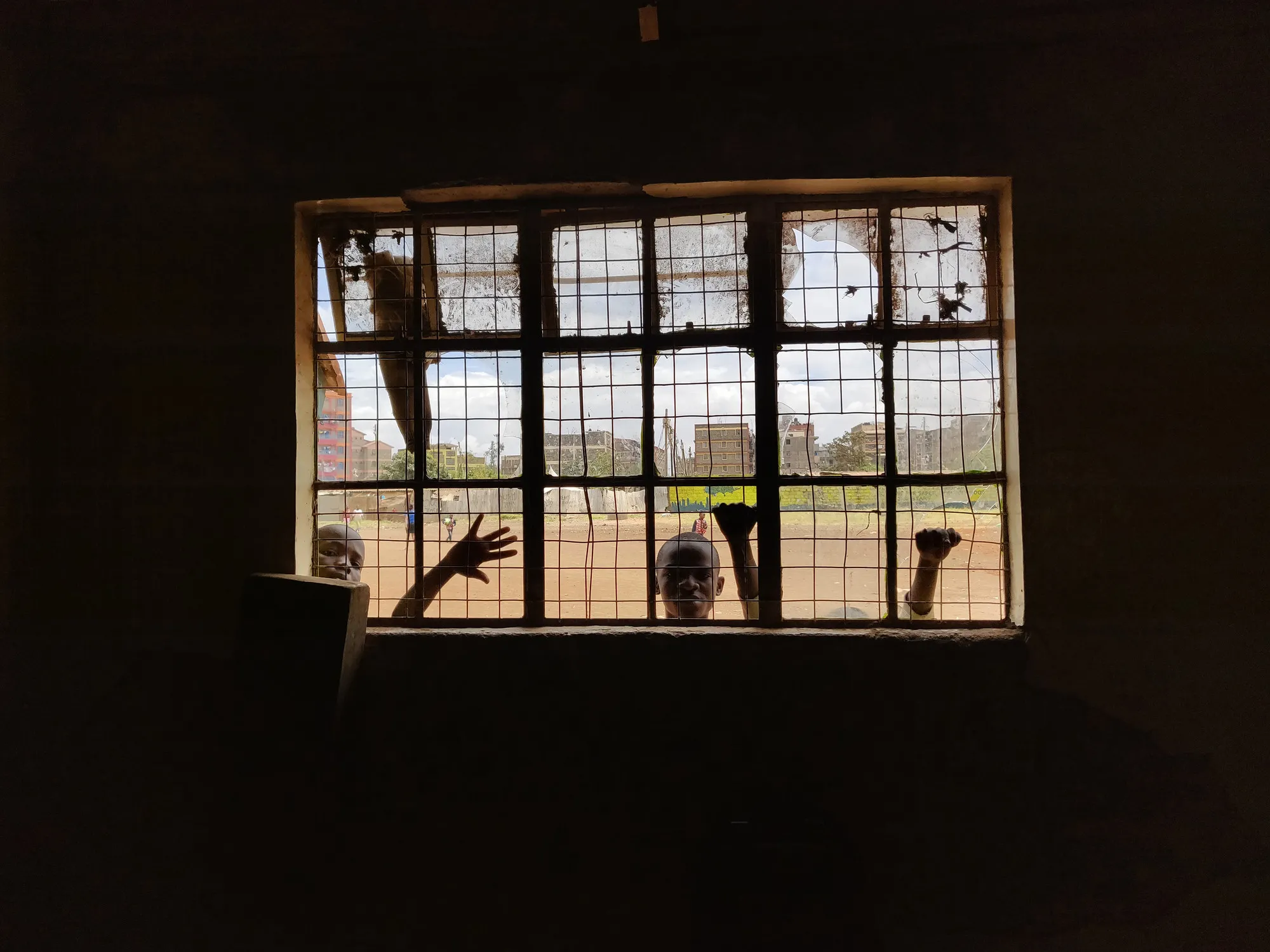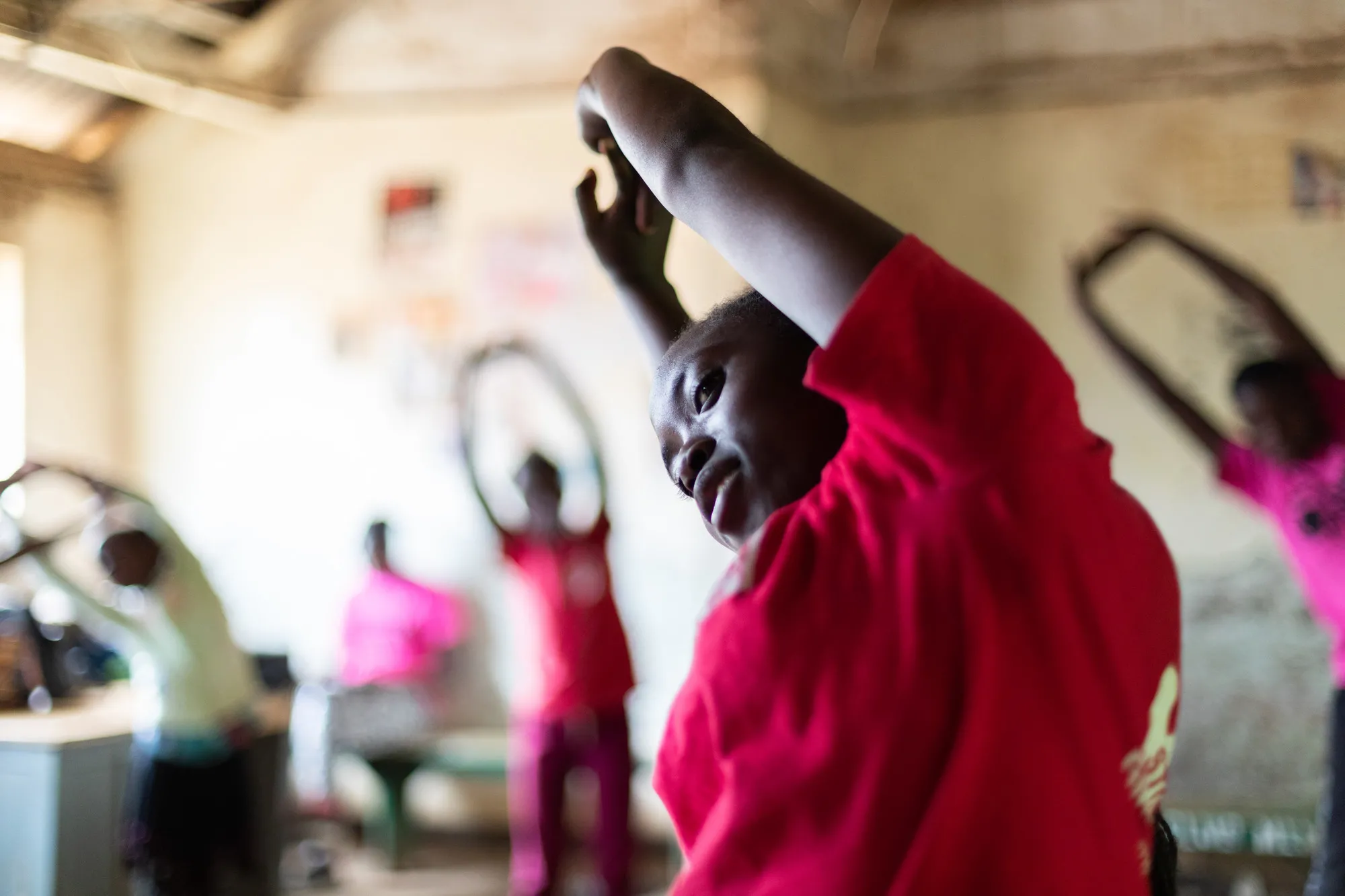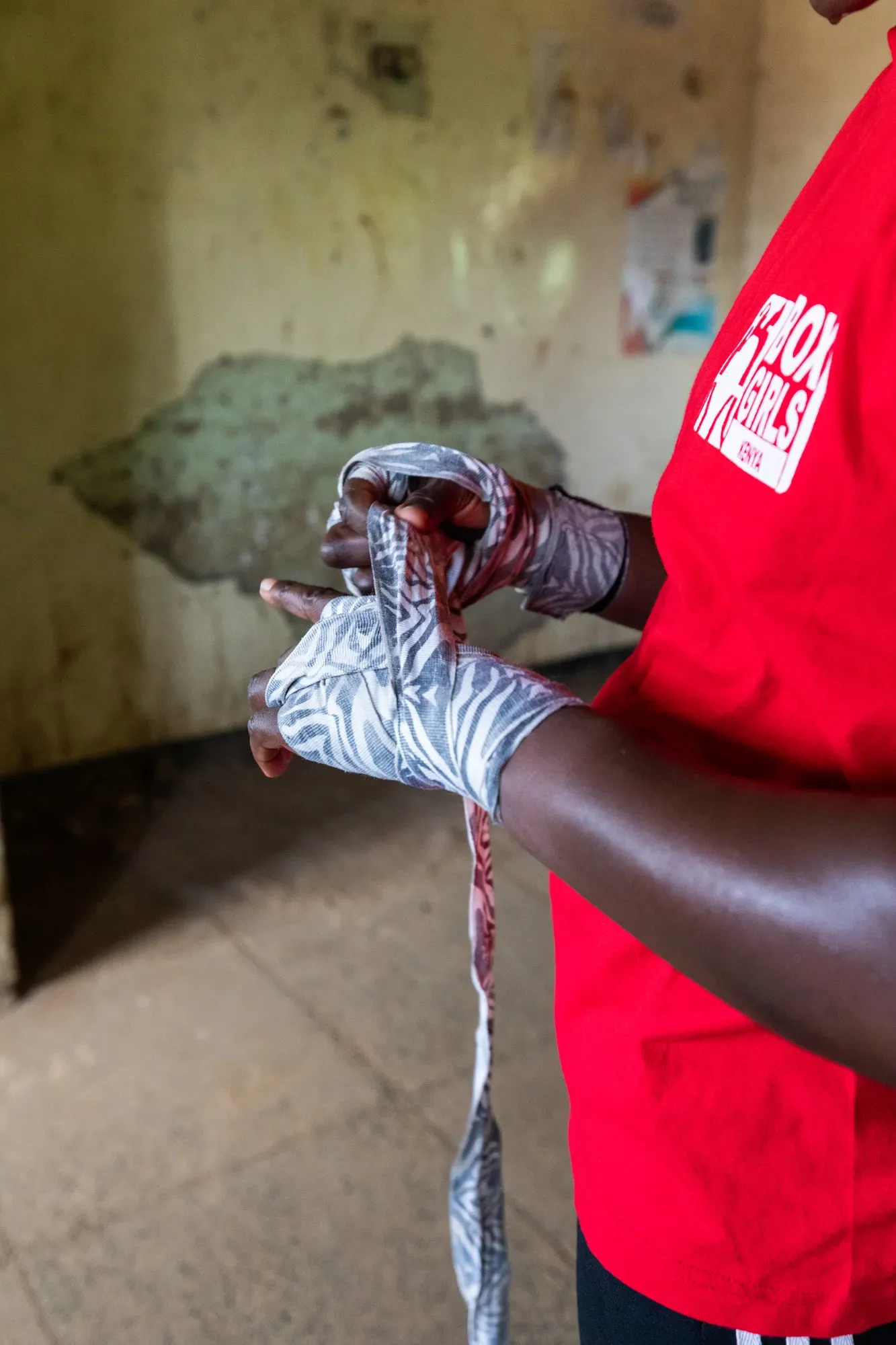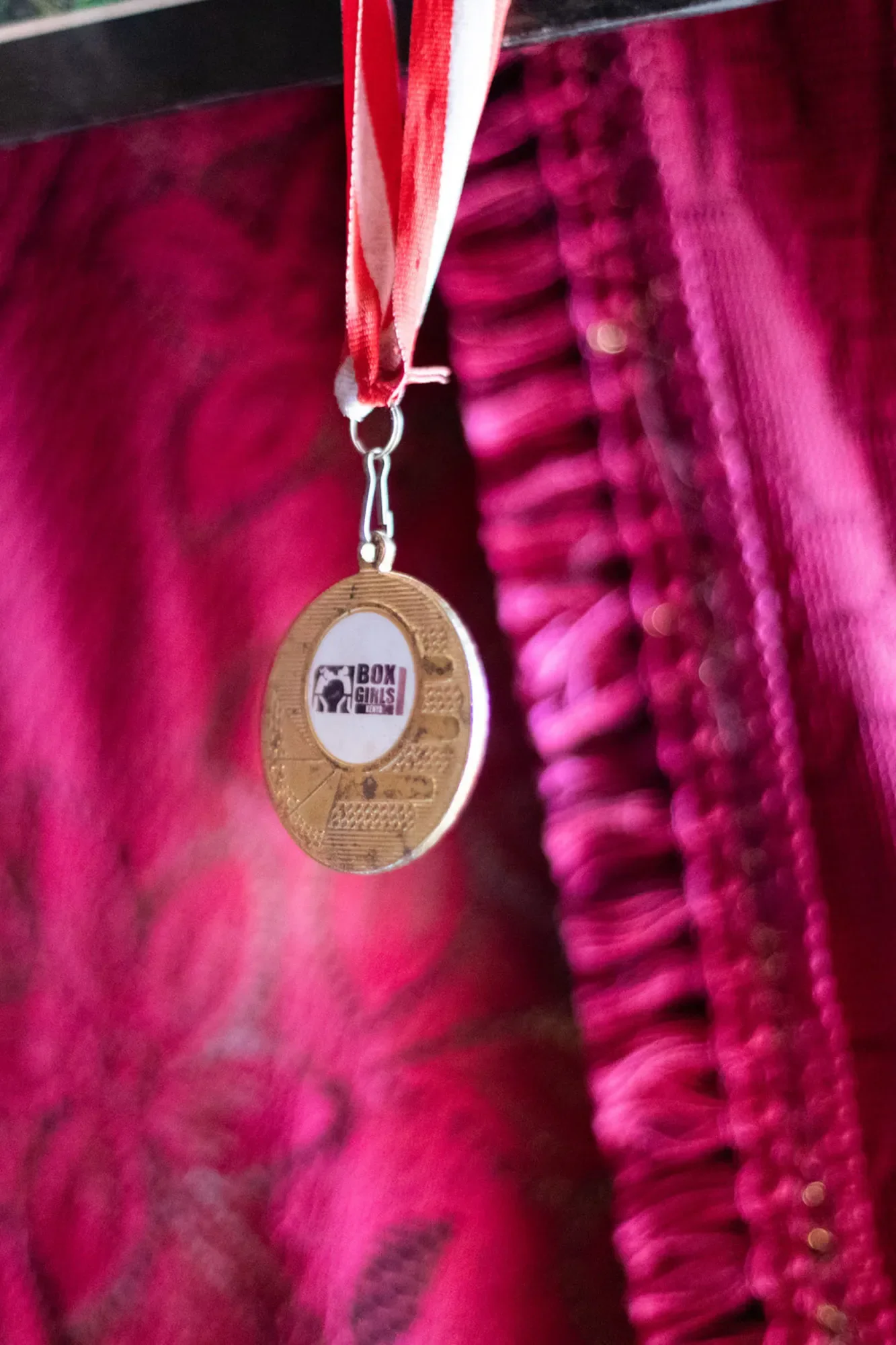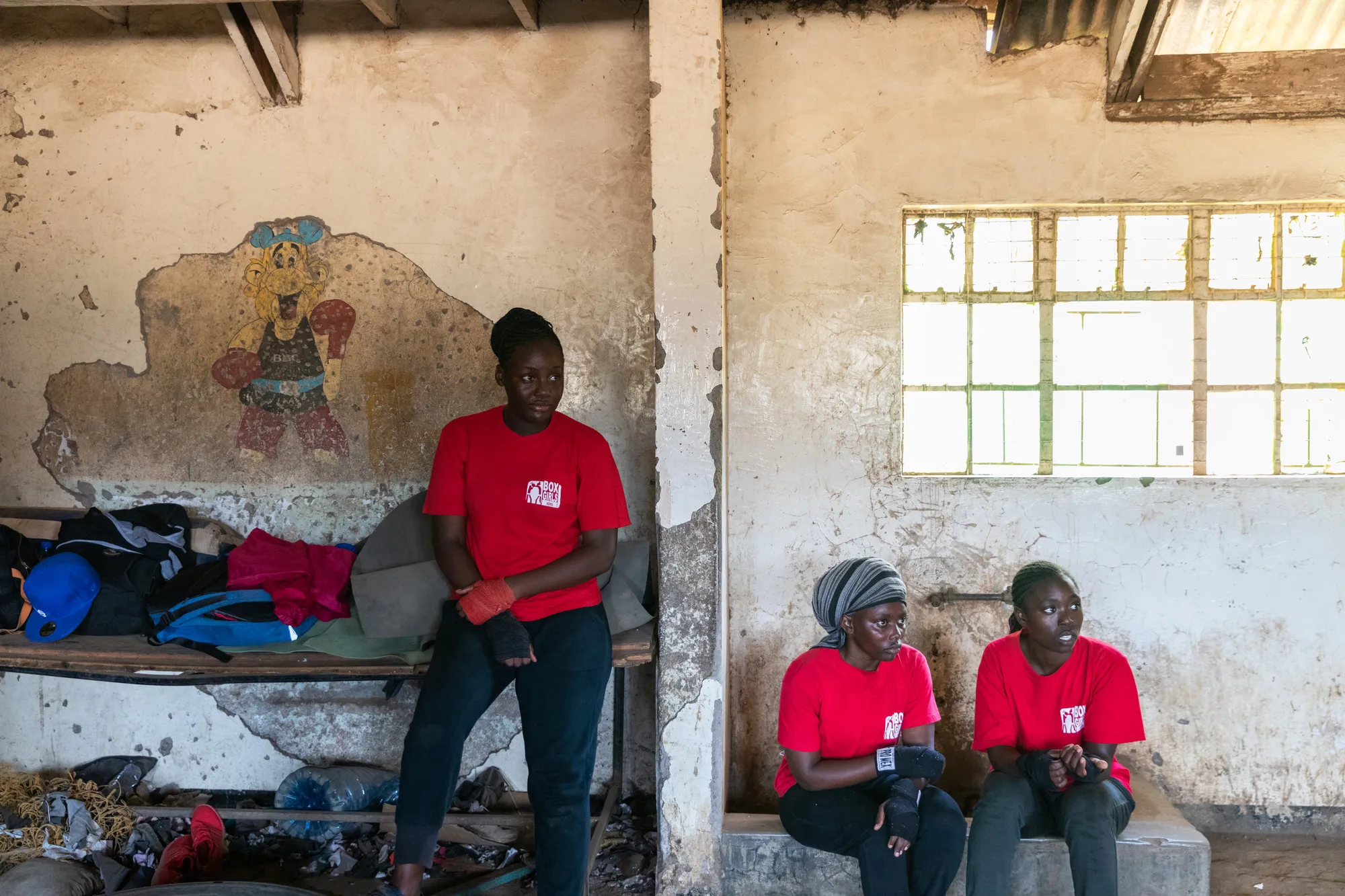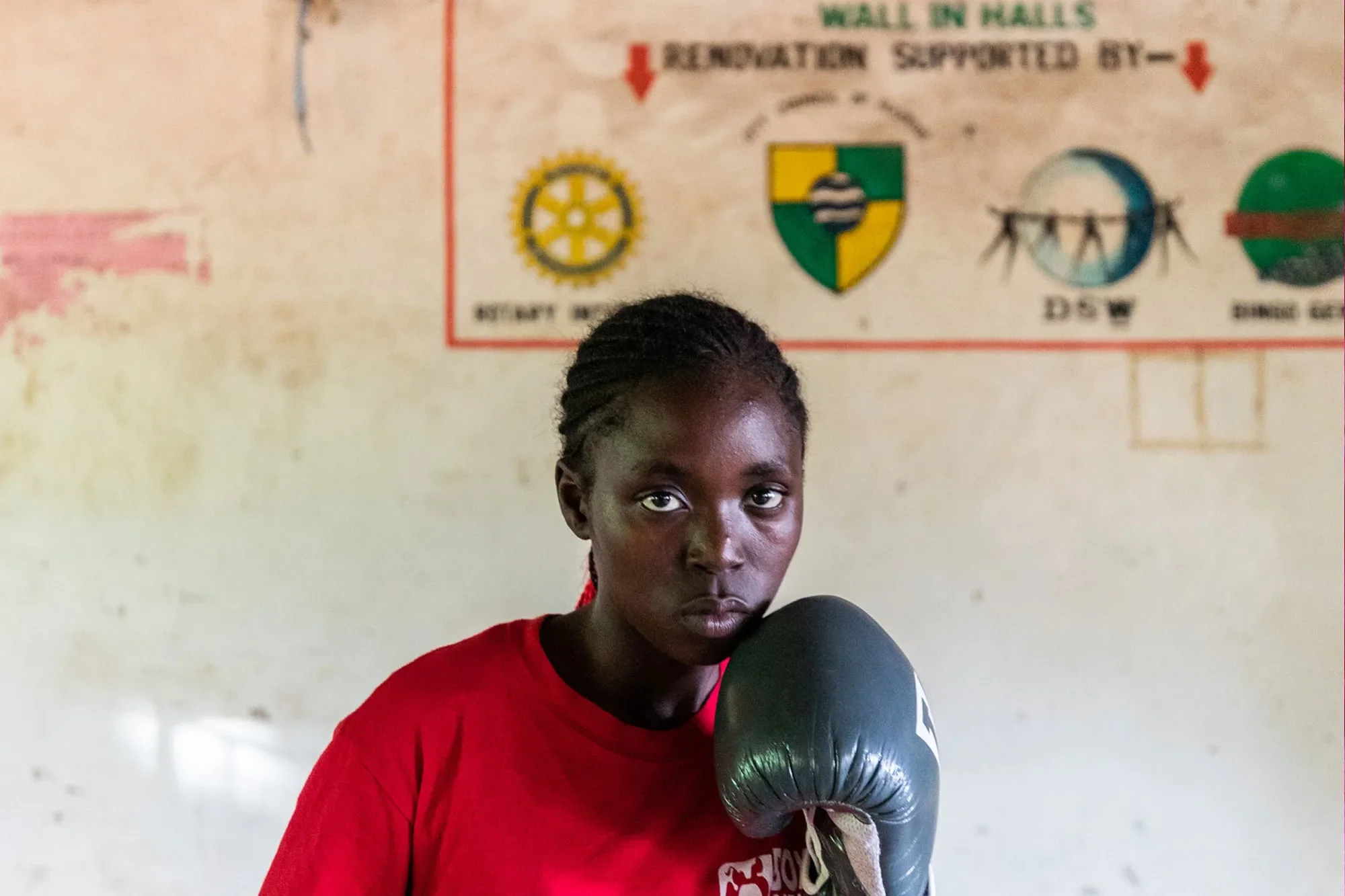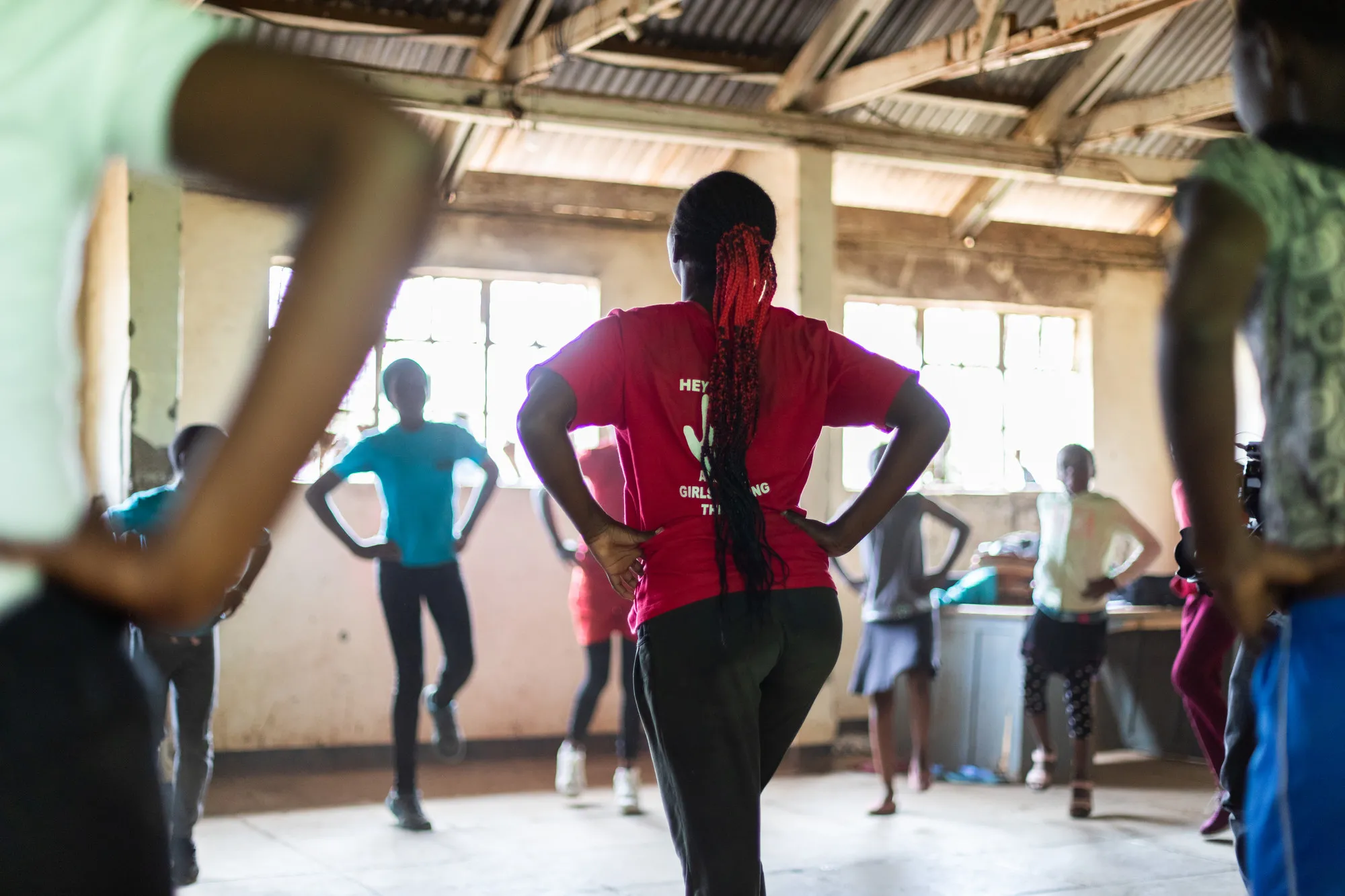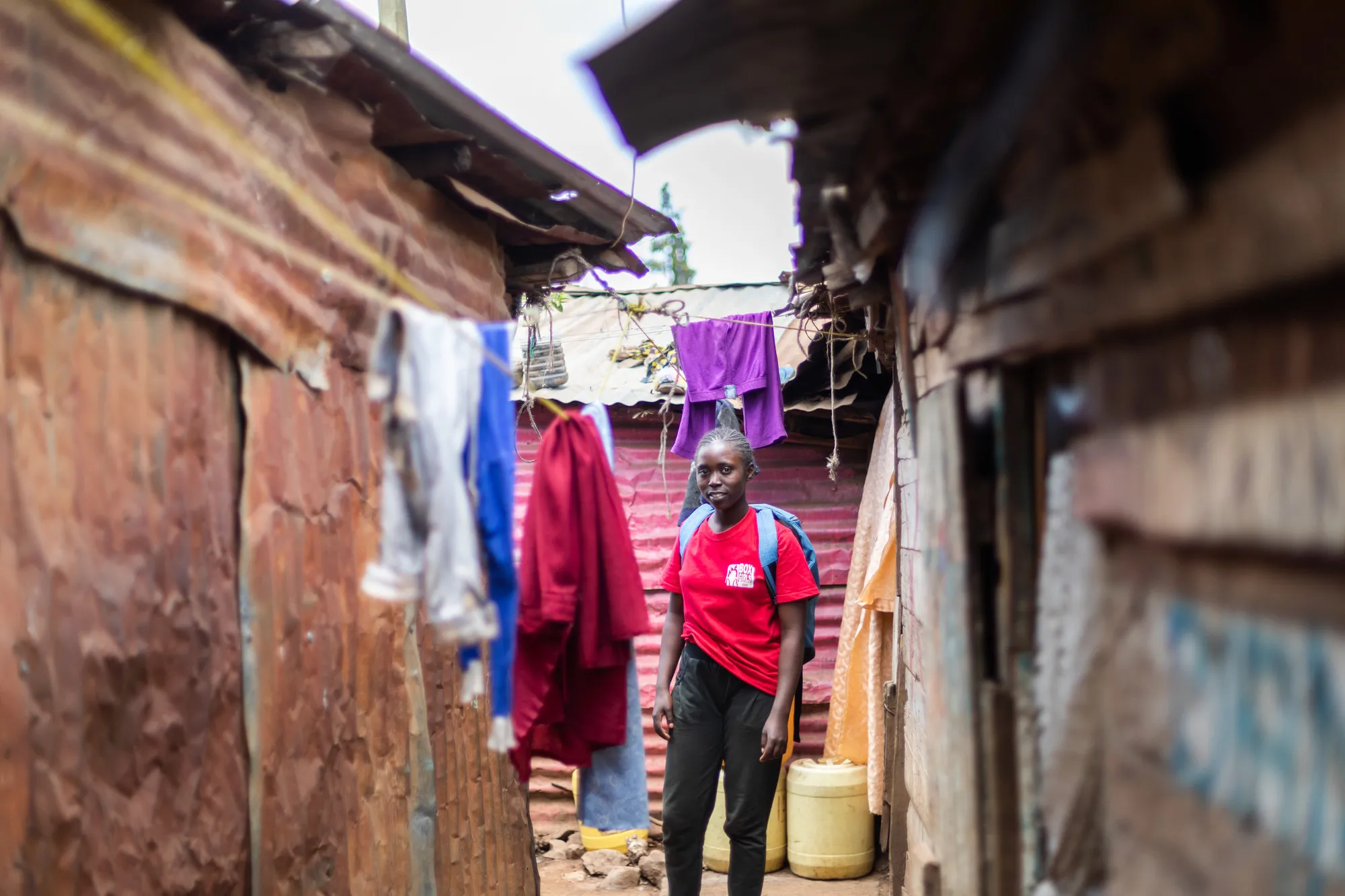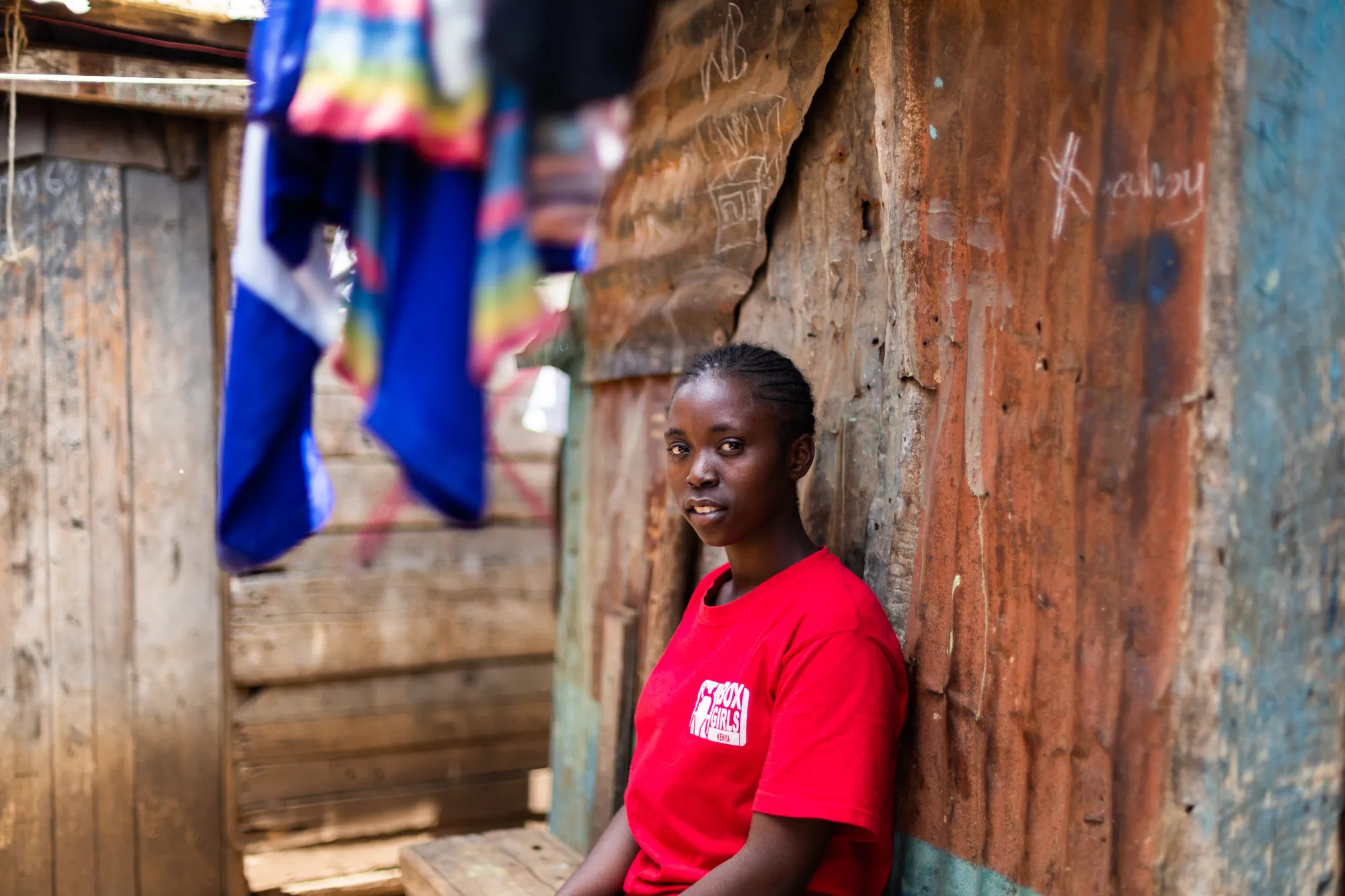At the Kariobangi Amateur Boxing Club, in a suburb of Nairobi, a group of 20 girls gather to train on a Saturday afternoon. A few boys linger outside, some barely tall enough to peep through the windows, and watch as the girls stretch, warm up and practice their jabs.
The girls, who range in age from 7 to 16, are members of Box Girls, a Kenyan organization that teaches boxing to girls from marginalized communities and provides workshops on life skills such as decision-making, confidence, and leadership.
Box Girls was founded by Alfred Analo, a boxing coach commonly known as Priest, in 2008 during a tumultuous time in Kenya. The fallout of the 2007 election resulted in violence in pockets of the country, including 900 reported cases of sexual violence, with estimates of tens of thousands of unreported assaults. With women and girls at risk, particularly in informal settlements, Priest realized that teaching them boxing as a form of self-defense could help.

